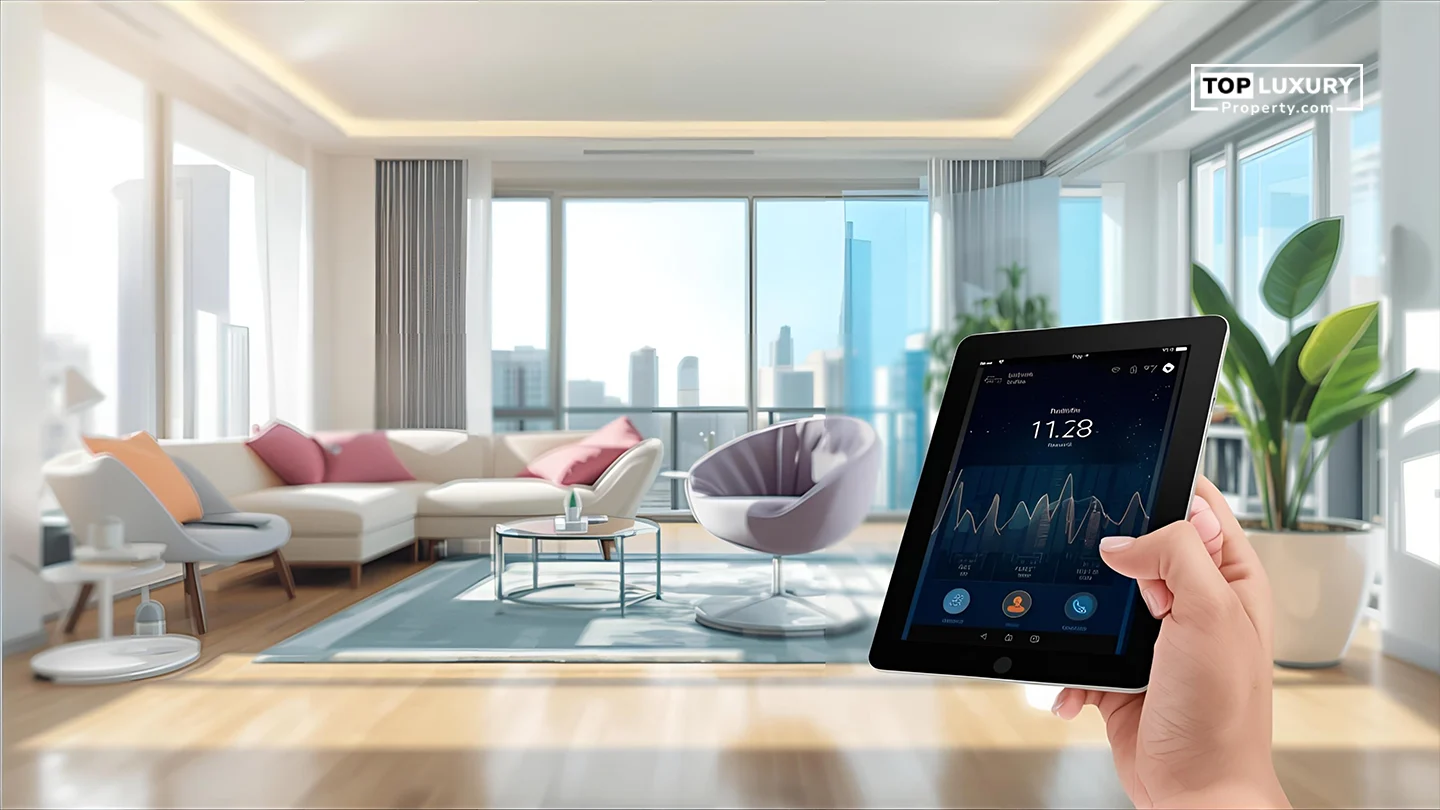Smart Home Health Monitoring Devices Benefits in Dubai
In an era where technology is deeply woven into our daily lives, the “smart home” has grown to include the vital area of personal health. In Dubai, a city leading in innovation, this evolution is particularly meaningful as smart living spaces are now being enhanced with advanced health monitoring systems. This article explores the benefits of these devices, showing you how they analyze data, connect with healthcare services, and ultimately help reduce costs and improve your overall health outcomes.
What Are Smart Home Health Monitoring Devices & Their Types?
A smart home health monitoring device is a connected tool that continuously or periodically measures your health metrics, transmitting this information via IoT or cellular links. In Dubai, you’ll find a variety of these devices changing how people manage their wellness.
Here are some common types you can consider:
- Wireless Medical Devices (DHA’s Smart Homecare Kit): The Dubai Health Authority (DHA) has a special kit that includes a set of wireless devices, such as a non-contact thermometer, an automatic blood pressure monitor, and a 4G router to keep you connected. It also comes with a smart tablet, pulse oximeter, pocket ECG for heart activity, blood glucose monitor, and wireless stethoscopes. All these devices connect seamlessly to DHA’s electronic health record system, Salama, to keep your records always up to date and the system efficient.
- All-In-One Non-Invasive AI Devices: In collaboration with a local startup called NPE, DHA has developed AI-powered healthcare partner. This device is non-invasive, using the underlying sensors to measure your important signals and provide real-time insight and guidance through your smartphone or tablet.
- Wearables and Remote Sensors: Widely popular, these devices include smartwatches, smart blood pressure devices, smart scales and smart thermometers that track your important health matrix. Many of them use IoTs to automatically sync their data with healthcare providers, making doctors easily monitor your health trends over time.
- Emerging Innovations: Scientists are developing new prototypes such as IoT-enabled wristbands. These wristbands are being created to help older adults live safely in their smart homes by monitoring their blood pressure, stress levels, skin temperature, and even location.
Key aspects of smart home health monitoring devices
These devices have a powerful set of features that work together to create a comprehensive health management system.
a) Remote Monitoring & Real Time Data Sync
One of the key features is remote monitoring, where doctors can monitor your health from a distance. With DHA’s program, exam results are sent instantly to the Salama system. Real-time sync means no delay in getting a doctor’s consultation or follow-up advice, no need for old-fashioned paper records, and makes the whole process more efficient for you.
b) Data Collection, Analysis, and Insights
Devices collect a significant amount of data, which is then analyzed by special apps like Bewell Connect. The data is organized and color-coded based on World Health Organization (WHO) standards, making it easy for you to understand. Your healthcare providers can analyze these trends over days, weeks, or months to gain deep insights and create a better care plan just for you.
c) Personalized Health Guidance
This is where AI truly shines. Devices from companies like Enpy use AI to interpret your vital signs and provide personalized advice. If your heart rate is high, it might give you an early alert, empowering you to be proactive about your health and a crucial part of modern telehealth.
d) Seamless Integration with Health Systems
The systems are designed to work together as a crucial part of Dubai’s health strategy. The devices send data directly to platforms like Salama, which is a huge improvement for documentation, making it more accurate and faster. This seamless flow helps your care teams collaborate and ensures everyone sees the same information, which is also vital for programs like “Doctor for Every Citizen.”
e) Improved Outcomes & Efficiency
The DHA has seen excellent results with its Smart Homecare program. These devices have significantly improved many areas of care, including:
| Metric | After Smart Homecare | Improvement |
|---|---|---|
| Care Capacity | 36% Increase | A big increase in your patient numbers |
| Accessibility Satisfaction | 95% | You are happy with access to care |
| Patient Happiness | 98.5% | Almost every patient is happy |
| Instant Documentation | Immediate | Much faster record keeping |
These improvements are very significant. They show how technology changes healthcare for you.
The clinical results are also impressive. The system has reduced many problems. Here are some examples of improvements.
- Pressure ulcers: The rate dropped to 0.06% from 0.07%. This is a notable drop.
- CAUTI rates: The rate fell from 0.004 to 0.001 per 1,000 days. This is a huge reduction.
- Skin and soft tissue infections: The rate went from 2% to 0.3%. This is a very big drop.
- Medication errors: The rate dropped from 2% to 1%. This means fewer mistakes are made.
These numbers show that Smart Home Health Monitoring is not just convenient. It makes your healthcare better. It makes it safer and more effective.
Cost Considerations: The Smart Home Health Monitoring Dubai Cost
Understanding the smart home health monitoring dubai cost is a common question, and it depends on what you’re looking for and the level of technology you want.
Smart Home Systems (General)
First, consider the cost of a general smart home system. A basic automation setup costs between AED 5,000 and AED 20,000. A mid-range system is between AED 20,000 and AED 50,000, while a full luxury setup can be over AED 500,000. Installation costs are separate and can add an extra AED 2,000 to AED 10,000 or more.
Health Monitoring Solutions
The costs for health monitoring solutions aren’t as widely publicized. DHA’s services are part of a government initiative, which may lower your end-user costs. Private solutions may involve hardware and software fees. However, some individual health devices are surprisingly affordable, like the Stemoscope, which costs around AED 550.
Top Off-Plan Projects in Dubai Using Home Health Monitoring Devices
What about new off-plan projects in Dubai? Developers are including this technology. Here is how Dubai developers are integrating smart home health Monitoring systems.
- Health-Ready Smart Homes: Developers can build homes that are health technology ready by installing the necessary infrastructure such as data ports for smart health kits.
- Collaborations with DHA and Innovators: Partnerships can allow developers to embed health monitoring as a value added feature especially in wellness focused developments.
- Subscription Models: Health monitoring can be offered as a subscription service where a fee covers both the hardware and a telehealth service, giving you flexibility.
The integration of health monitoring technology in off-plan projects reflects the emirate’s vision to become the world’s smartest city while addressing growing consumer demand for wellness-oriented living spaces. Here are some off-plan projects that come with health monitoring systems.
- Lyvia by Palace
- HRE wadi Hills
- Verdanla 3
- The Elysian Residence
- Meraas Nourelle
- Azizi Lina
Conclusion
In the end, the rise of these devices is a perfect synergy of technology and well-being in Dubi competitive real estate market. By giving you continuous real-time health insights these systems enable you to take control of your health while making healthcare services more efficient, accessible and cost effective.







